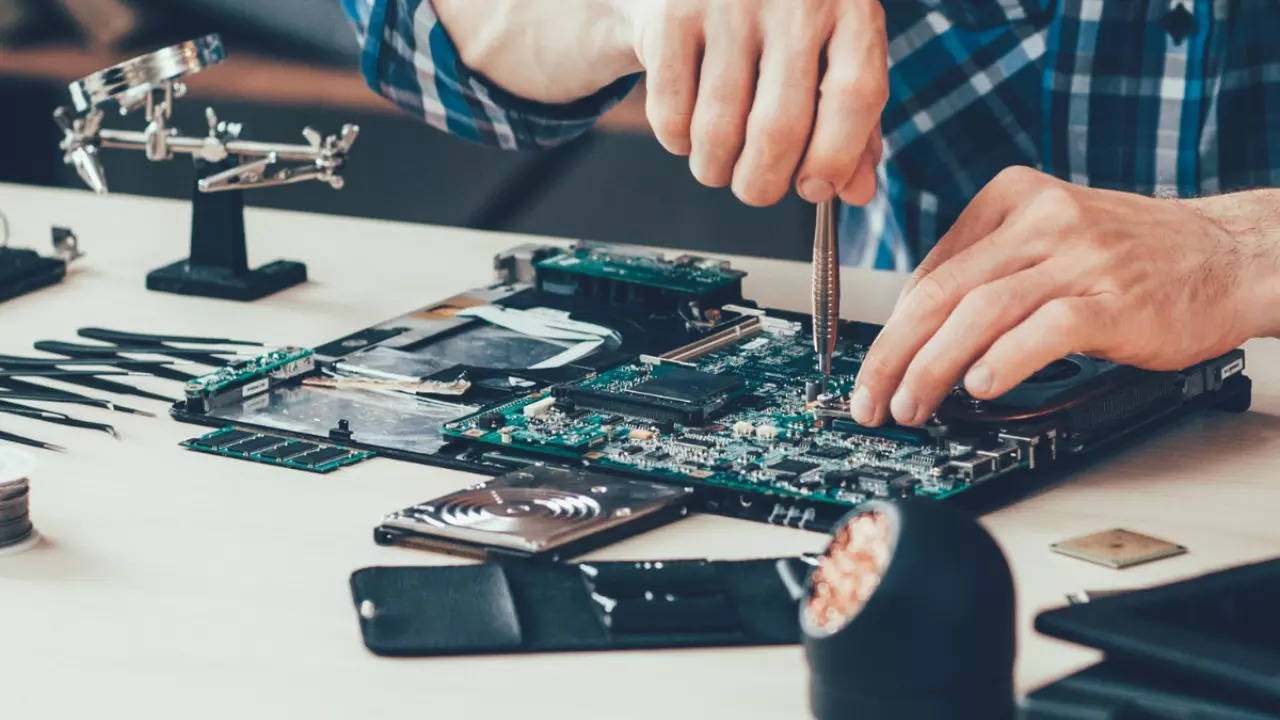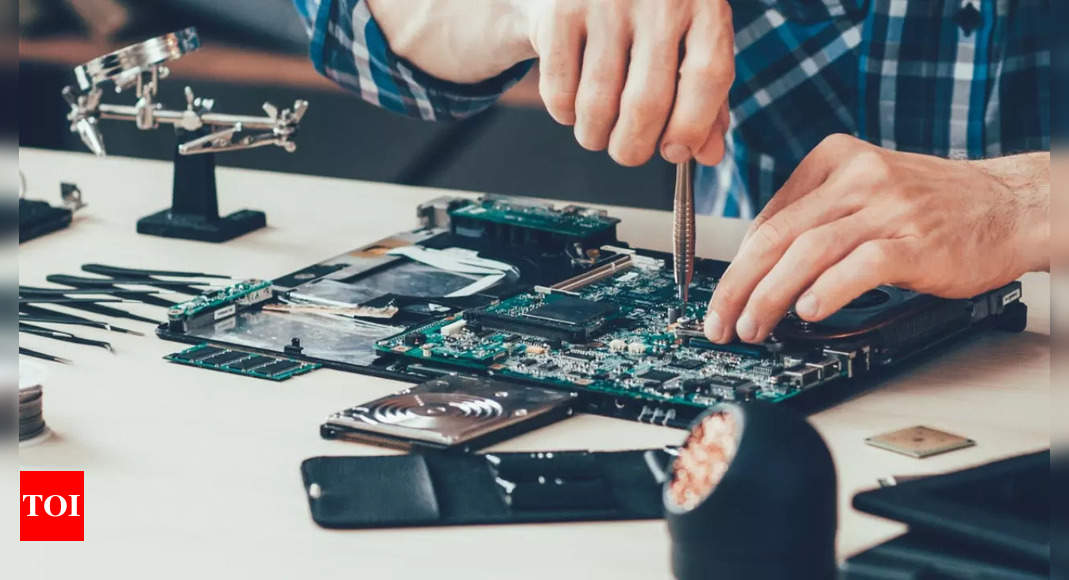
NEW DELHI: Laptop and other hardware companies have petitioned the government to defer a licencing regime for imports, saying that the measure (comes into force post October 31 this year) may lead to disruptions in supply, and impact prices and availability of stocks.
“It is critical that we ensure an uninterrupted supply for at least a year, and till such time, we can build up domestic capacity,” the Indian Cellular and Electronics Association (ICEA) said in a petition to IT secretary Alkesh Kumar Sharma. The petition comes at a time when the government has received a strong response to the production-linked incentive (PLI) scheme for IT hardware (laptops, tablets, servers etc.), where around 40 companies – domestic as well as global – have submitted their proposals for investment. These include American HP and Dell, Taiwanese Asus and Acer, and Chinese Lenovo.
While lauding the new updated PLI policy that promises benefits of Rs 17,000 crore to companies, ICEA (which represents large global as well as domestic companies) said the government should not go for sudden changes in regulatory policies as it may impact supply chains. It said demand for laptops and certain IT hardware products is passing through a slowdown with a sharp reversal in demand.
“The government may appreciate that the industry is going through a difficult period, and any policy change that can disrupt supply chains before the results of the PLI for IT hardware come to the fore is not advisable. It will take us about one to two years to start transforming the sector and establish meaningful assembly and supply chain operations.”
The petition comes even as key government officials dealing with the matter have categorically said there would be “no further extensions” in rolling out the licensing regime that happens from November 1.
ICEA also said sudden changes in policy environment may also have an adverse impact on youth, consumer prices and the growth of the digital economy. “Another overarching factor that should be taken into consideration in avoiding supply chain disruption till domestic production ramps up is that any reduction in supplies or even an indication will lead to hoarding and market distortion. This, in turn, can push up consumer prices.”
It said such a scenario will adversely impact not just key stakeholders such as students, but also those who are the core of growing the digital economy such as start-ups, IT & ITES firms, and BPOs.
ICEA said any policy change should be undertaken only after the government makes an “objective assessment” on how the PLI 2.0 scheme starts to positively impact domestic production. “Realistically, nine months after the PLI for IT hardware has been launched, the government may undertake a re-assessment of the investment pipeline and the supply situation before inviting the industry to discuss whether any further policy intervention is needed at that stage. It may be too early to assess the full implication of the new scheme before then.”
“It is critical that we ensure an uninterrupted supply for at least a year, and till such time, we can build up domestic capacity,” the Indian Cellular and Electronics Association (ICEA) said in a petition to IT secretary Alkesh Kumar Sharma. The petition comes at a time when the government has received a strong response to the production-linked incentive (PLI) scheme for IT hardware (laptops, tablets, servers etc.), where around 40 companies – domestic as well as global – have submitted their proposals for investment. These include American HP and Dell, Taiwanese Asus and Acer, and Chinese Lenovo.
While lauding the new updated PLI policy that promises benefits of Rs 17,000 crore to companies, ICEA (which represents large global as well as domestic companies) said the government should not go for sudden changes in regulatory policies as it may impact supply chains. It said demand for laptops and certain IT hardware products is passing through a slowdown with a sharp reversal in demand.
“The government may appreciate that the industry is going through a difficult period, and any policy change that can disrupt supply chains before the results of the PLI for IT hardware come to the fore is not advisable. It will take us about one to two years to start transforming the sector and establish meaningful assembly and supply chain operations.”
The petition comes even as key government officials dealing with the matter have categorically said there would be “no further extensions” in rolling out the licensing regime that happens from November 1.
ICEA also said sudden changes in policy environment may also have an adverse impact on youth, consumer prices and the growth of the digital economy. “Another overarching factor that should be taken into consideration in avoiding supply chain disruption till domestic production ramps up is that any reduction in supplies or even an indication will lead to hoarding and market distortion. This, in turn, can push up consumer prices.”
It said such a scenario will adversely impact not just key stakeholders such as students, but also those who are the core of growing the digital economy such as start-ups, IT & ITES firms, and BPOs.
ICEA said any policy change should be undertaken only after the government makes an “objective assessment” on how the PLI 2.0 scheme starts to positively impact domestic production. “Realistically, nine months after the PLI for IT hardware has been launched, the government may undertake a re-assessment of the investment pipeline and the supply situation before inviting the industry to discuss whether any further policy intervention is needed at that stage. It may be too early to assess the full implication of the new scheme before then.”
Source link

